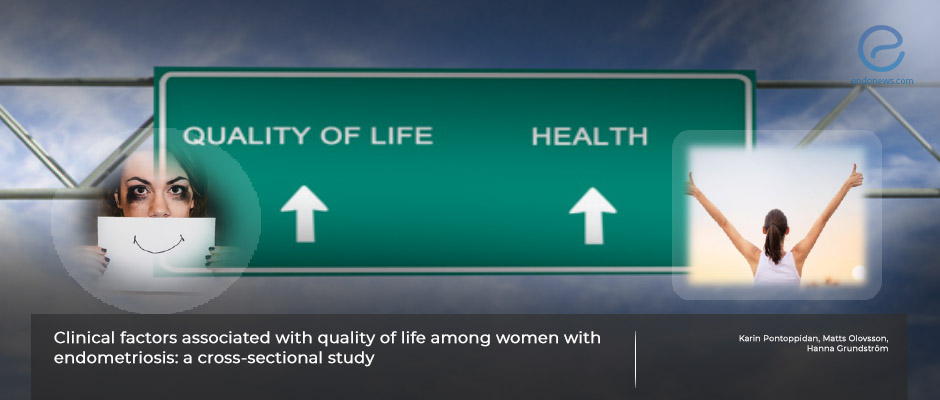Quality of life analyses among women with endometriosis
Dec 8, 2023
Mental health issues and the use of opioids are the most notable clinical factors to diminish the quality of life in endometriosis patients, the study found.
Key Points
Importance:
- To improve endometriosis care, a better understanding of the "potential impact of clinical variables" on the quality of life is important.
Highlights:
- The use of opioids and mental health issues are the most critical factors affecting the quality of life in women with endometriosis.
What's done here:
- This cross-sectional study was conducted in ten Swedish centers by using Endometriosis Health Profil-30 (EHP-30) and ENDOCARE questionnaires on women with endometriosis.
- The univariant and multivariant analyses were performed on patients who completed the digital survey.
- the aim is to analyze the clinical factors associated with those patients' Quality of Life index and the awareness of women with their health quality changes.
Key Results:
- A total of 487 women completed the digital surveys. Half of the patients had higher education levels.
- Around two-thirds of the patients had permanent treatment by a responsible gynecologist, and currently using hormonal treatment, while 26% of them were opioid users.
- Clinical factors that were significantly correlated with quality of life were the age of onset of the clinical symptoms, current mental health issues, patient-centeredness, and opioid use.
- About 10 or more visits to a general practitioner before referring a gynecologist was considerable.
- The total patient-centeredness average score was 3,7.
Lay Summary
Clinical factors that may affect the quality of life in women with endometriosis are mental health, sexual life, working capacity, and social relations. Symptom severity, especially dysmenorrhea, heavy periods, pelvic pain, and infertility complaints, are the most disturbing factors in their life. From the University of Uppsala, Sweden, a team led by Dr. Grundström, set up a prospective cross-sectional study in ten clinical centers in Sweden to analyze which clinical factors affect the quality of life of women with endometriosis.
A randomly selected 100 women from each of the above clinics diagnosed with endometriosis who had visited the clinics with endometriosis symptoms in the last five years were included in the study. The digital survey was about the clinical and sociodemographic characteristics of the patients to validate patient-centeredness, and to measure the quality of life. The response rate was 48%, and the mean age of the patients was 36,5 years.
Regarding the dimensions of quality of life, using opioids was associated with the worst outcomes in pain, control of powerlessness, and social support dimensions. Having previous mental health problems was associated with worse outcomes in emotional well-being, social support, and self-image dimensions. importantly, the diagnostic delay was associated with worse outcomes with pain and emotional well-being. Using hormonal treatment was associated with better outcomes of pain. Worse outcomes were related to younger age at first symptom and lower patient-centeredness.
The overall results indicated a correlation between patient-centeredness and better quality of life. "An improved patient-centeredness and more focus on taking care of mental health issues will help to gain better QoL scores for the women with endometriosis", the authors concluded.
This valuable study that will help to improve endometriosis patient care was recently published in BMC Women's Health.
Research Source: https://pubmed.ncbi.nlm.nih.gov/37875883/
quality of life endometriosis health profil-30 ENDOCARE questionnaire opioids mental health patient's centeredness endometriosis.

